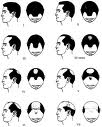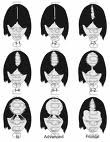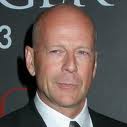05.05.2010
in HAIR LOSS HEALTH NEWS

Poor lifestyle choices can impact hormone release, flaring genetic disposition for balding
By Jonathan Yousefzadeh
Although hair loss is attributed to genetics, health professionals believe stress can exacerbate hair loss by triggering the release of certain hormones in the body which can damage hair follicles.
“Your DNA basically decides if and when you’re going to lose your hair. The primary cause of hair loss is genetic,” said Dr. Gary Perrault, a hair restoration specialist in Beverly Hills.
There are about 100,000 hairs on our heads, and we normally lose 100 to 150 strands a day, said Ted Robles, a health psychology professor who studies the different effects stress has on the body.
Natural hair loss may not be noticeable, but certain hair loss diseases, which young adults are genetically predisposed to, can be aggravated by stress and can cause baldness, said Dr. Cristina Kim, a dermatologist at the Ronald Reagan UCLA Medical Center.
Robles said that although current research does not suggest hair loss is completely attributed to stress, it plays a role in how much hair is lost.
Some studies show that certain hormones our body release in response to stress can communicate with hair molecules, and stress certainly communicates with cells throughout the body, Robles said.
“The mechanism for which stress might influence hair loss is plausible and exists,” she added.
Certain hormones released while in times of stress, like dihydrotestosterone, can shorten the life of hair follicles, Perrault said.
These hormonal imbalances are not only affected by stress, but also by the poor lifestyle choices students make, Perrault added. In addition to stress, lack of sleep or a nutritious diet can affect the genetic process in our bodies, he said. During stress especially, the immune system responds differently than normal. As a result, a type of cellular death called apoptosis can occur more often, sometimes killing off cells that would not otherwise be killed, he said.
There are several types of stress most attributed to hair loss, Kim said. One is emotional stress, the type of stress students may have due to exams, work or relationship problems. The other type is medical stress, which patients experience after having surgery or after being in a car accident, she added.
The most common stress-related hair loss problem is telogen effluviam, which is the shedding of hair throughout the head rather than balding in certain spots. There is currently no treatment for telogen effluviam; however, this particular hair loss problem is temporary. Kim said that hair growth is cyclical, and that hair takes, on average, six months to regrow.
Other types of hair loss due to stress include alopecia areata, an autoimmune disease where the immune system attacks hair follicles and causes round patches of baldness on the head. Stress can flare this otherwise latent disease in college students, Kim said.
Stress-related hair loss like alopecia areata is treatable with prescription creams and medications, but there is currently no oral medication for stress-induced hair loss, she said.
Robles said he believes that lowering stress levels can not only help decrease the risk of hair loss in students, but it could help other aspects of students’ lives as well.
He added that some studies show the ill effects of stress on students’ immune systems. The experimenters in one study punctured wounds into students’ skin during finals week in order to measure how long it would take for the wound to heal. On average, it took three days longer for the same-sized wound to heal, he said.
“Regardless of the impact stress has to hair loss, I think everybody can benefit from being aware of the stress that they experience,” Robles said.
“We can’t avoid stress, we have to take exams, we have to write papers, but we can certainly change how we deal with stress,” he said. Robles advises students to talk friends or professionals about their problems to alleviate stress.
Do you have Hair Loss Problems, read our Hair Loss Help












